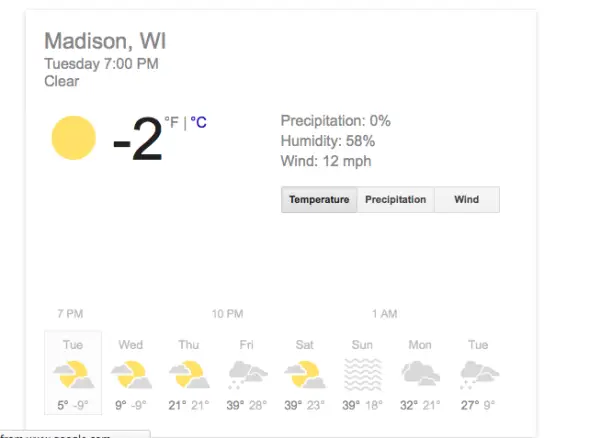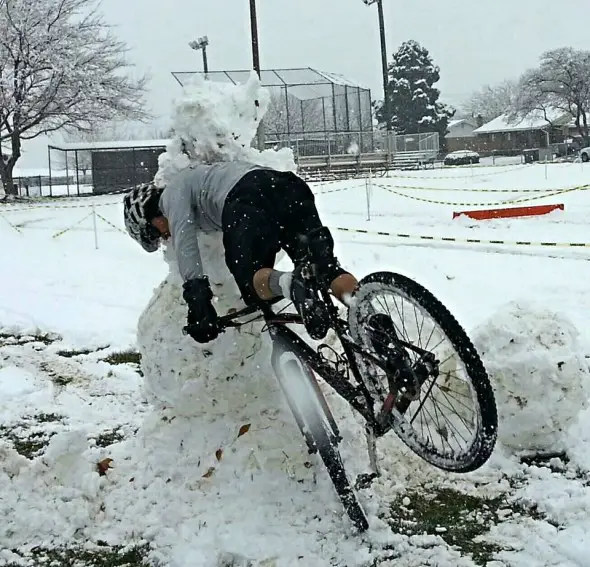Last month, racers across the US found themselves debating a not-so-hot topic: at what point should a race be canceled for temperature? In Bend, Oregon, where temperatures hovered just above zero degrees Fahrenheit, some argued that the races should have been canceled. Some racers found themselves battling frostbite and hypothermia post-race, and while others argued that the racers should be prepared for anything, some pointed to the UCI rule that says races must be canceled when temperatures drop to -5 degrees.
In fact, it was the temperatures that weekend that, in essence, prompted the SRAM recall of their hydraulic disc road brakes.
Just think: if Nationals had been in Madison again this year, looking at the forecast, many of the earlier races would actually end up being canceled—or at the very least, attendance would have dwindled, as flights to Milwaukee and Chicago are all but grounded at the moment.
 While Boulder has more mild temperatures and races will continue as scheduled, the “Polar Vortex” has caused some racers to be left *ahem* out in the cold as flights were canceled thanks to snow and rarely seen temperatures. While ’crossers with weekend races will hopefully be able to catch their flights on time, the non-championship races and Thursday racers may be the most heavily impacted. This reporter is currently en route to the racing action from the East Coast, one of the areas most heavily impacted by the snow and frigid air, and can say that while flying is impossible, driving is not proving to be much better.
While Boulder has more mild temperatures and races will continue as scheduled, the “Polar Vortex” has caused some racers to be left *ahem* out in the cold as flights were canceled thanks to snow and rarely seen temperatures. While ’crossers with weekend races will hopefully be able to catch their flights on time, the non-championship races and Thursday racers may be the most heavily impacted. This reporter is currently en route to the racing action from the East Coast, one of the areas most heavily impacted by the snow and frigid air, and can say that while flying is impossible, driving is not proving to be much better.
Want more weather geek outs? With temperatures swinging from 61°F to 1°F in less than 48 hours in Boulder, we were curious about how the weather differs between the next three host cities for the USA Cycling Cyclocross National Championships (Boulder, Austin and Asheville), and you can read about it here.
For all the best Cyclocross Nationals 2014 coverage, including bike profiles, race reports, results and video interviews, check out our 2014 Cyclocross National Championship Page here.





























